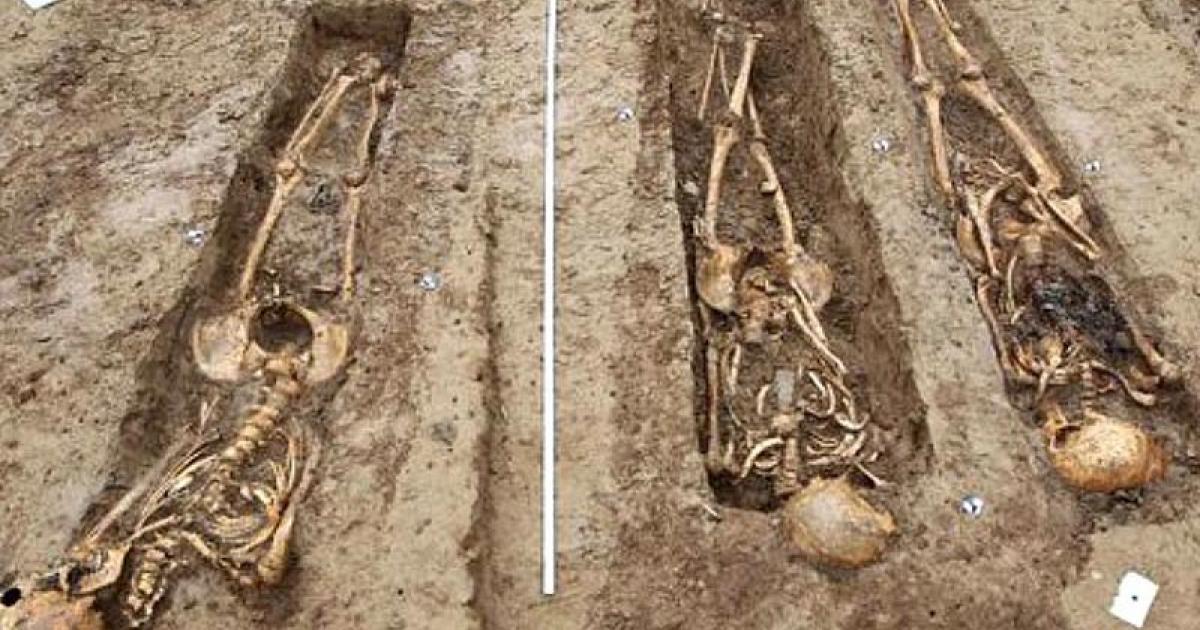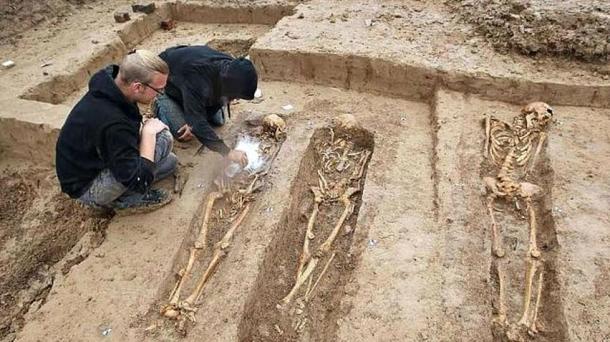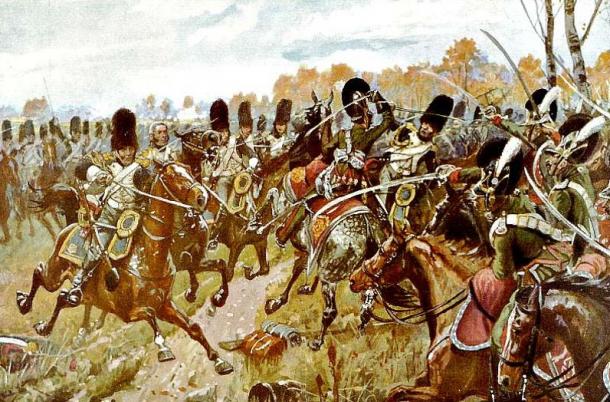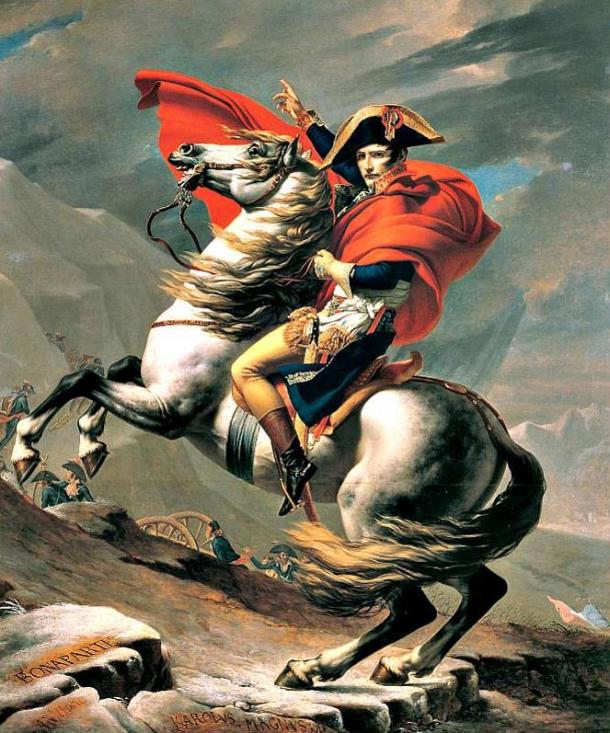Hundreds of skeletons of soldiers in Napoleon’s army have been discovered in the city of Frankfurt at a future construction site thanks to archaeological studies started decades ago.

“We estimate that about 200 people were buried here. According to our preliminary estimates, they are soldiers who belonged to the Grande Armée that died in 1813 ” on their way back home after the “painful defeat of Napoleon in his Russian campaign” stated Olaf Cunitz, the Mayor of Frankfurt, in the newspaper ABC.
The graves were uncovered thanks to the excavations performed by a group of archaeologists at the site over several decades. In 1979, they found other bodies of soldiers in an area close to the current discovery, reported Le Figaro.
Simple and Poorly Placed Graves
Andrea Hampel, manager of the supervision of historical monuments of the city of Frankfurt, said that these are a series of quick burials – something that was common in the Grande Armée at the time. The fact that the soldiers were buried in coffins, aligned side by side, has allowed the preservation of the skeletons. Nonetheless, there is no identification for the individual remains .

Archaeologists working on the graves of Napoleonic soldiers discovered in the German city of Frankfurt. (ABC)
The fact that the bodies are found in a strange orientation, buried in the North/South direction, when at that time it was the Christian custom in Europe to bury the dead in the direction East/West is the evidence provided for the reasoning that the burials were hasty.
The buttons on the uniforms from the skeletons place the time of death around 1813, which confirms the mayor’s statements.
It is probable that the soldiers died because of war wounds or succumbed to the severe typhus epidemic that decimated the great armies of the time, however, these hypotheses have not yet been scientifically verified.
The Nation reported that more than 30 skeletons have already been exhumed and that there are about 200 graves in total to be excavated. Jürgen Langendorf, the lead researcher, expects that archaeological work will continue at the site for the next four to six weeks.
The Battle of Hanau
On their way back to France, Napoleon’s armies entered into battle at Hanau (a town near Frankfurt) with Napoleon at the lead, at the end of October 1813. It was a terrible fight which continued throughout the region and in the end it is estimated that about 15,000 men died.
The battle of Hanau took place between October 30-31, 1813. It was a clash between Karl Philipp von Wrede and the Austro-Bavarian army and the French army in retreat with Napoleon, during the War of the Sixth Coalition. The Sixth Coalition (1812-1814) consisted of the United Kingdom, Russia, Prussia, Sweden, Austria and a number of German states, and was created with the purpose of fighting the Napoleonic Empire and its allies.

The French grenadiers against the Bavarian light cavalry in one of the decisive moments of the battle of Hanau. Richard Knötel (Wikimedia Commons)
Bonaparte, in spite of the great successes in battles like that of Dresden, was finally defeated in the Battle of Leipzig in Saxony, between October 16-19, 1813. Also called the ” Battle of the Nations,” the battle of Leipzig was the largest armed conflict of all the Napoleonic Wars.

Napoleon Crossing the Alps, Jacques-Louis David. (Wikimedia Commons)
After defeat at the battle of Leipzig, Napoleon began his withdrawal from German soil towards France. However, Wrede tried to block the line of flight of Napoleon in Hanau on October 30. Unfortunately for Wrede, Napoleon arrived with reinforcements at Hanau before Wrede and thus was prepared and defeated Wrede’s troops. By October 31, Hanau and was under French control, which enabled a clean line of retreat to Paris.
In the end, member states of the Sixth Coalition launched a successful invasion of France in 1814, which forced Napoleon to abdicate and paved the way for the restoration of the Bourbons. Napoleon Bonaparte eventually was exiled to Elba island.